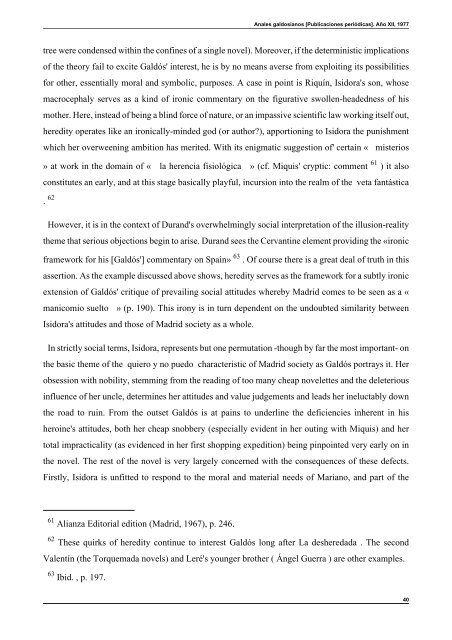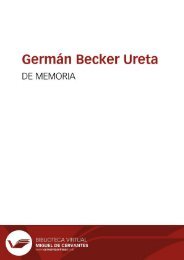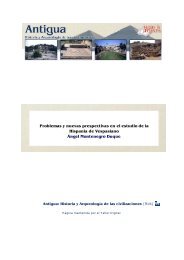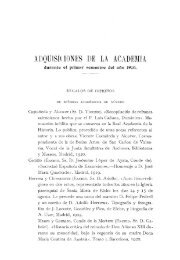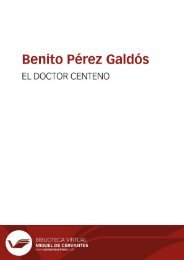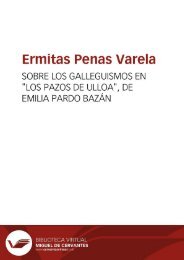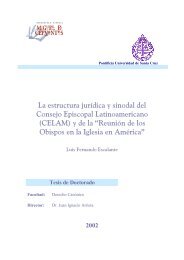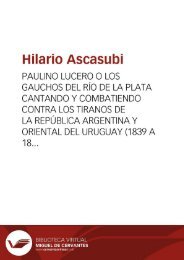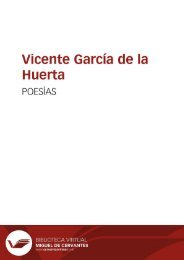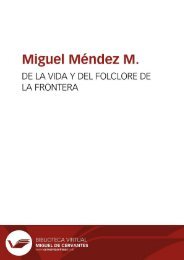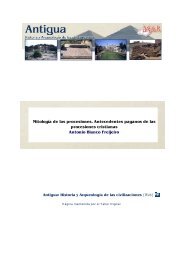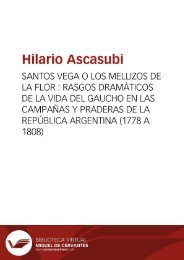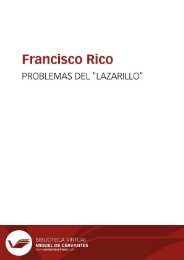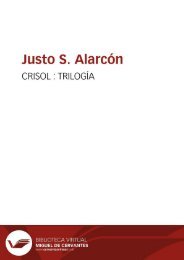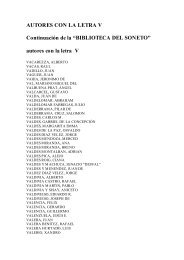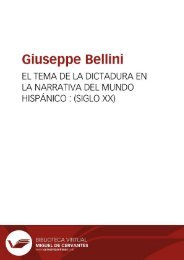Create successful ePaper yourself
Turn your PDF publications into a flip-book with our unique Google optimized e-Paper software.
Anales galdosianos [Publicaciones periódicas]. Año XII, 1977<br />
tree were condensed within the confines of a single novel). Moreover, if the deterministic implications<br />
of the theory fail to excite <strong>Galdós</strong>' interest, he is by no means averse from exploiting its possibilities<br />
for other, essentially moral and symbolic, purposes. A case in point is Riquín, Isidora's son, whose<br />
macrocephaly serves as a kind of ironic commentary on the figurative swollen-headedness of his<br />
mother. Here, instead of being a blind force of nature, or an impassive scientific law working itself out,<br />
heredity operates like an ironically-minded god (or author?), apportioning to Isidora the punishment<br />
which her overweening ambition has merited. With its enigmatic suggestion of' certain « misterios<br />
» at work in the domain of « la herencia fisiológica » (cf. Miquis' cryptic: comment 61 ) it also<br />
constitutes an early, and at this stage basically playful, incursion into the realm of the veta fantástica<br />
. 62<br />
However, it is in the context of Durand's overwhelmingly social interpretation of the illusion-reality<br />
theme that serious objections begin to arise. Durand sees the Cervantine element providing the «ironic<br />
framework for his [<strong>Galdós</strong>'] commentary on Spain» 63 . Of course there is a great deal of truth in this<br />
assertion. As the example discussed above shows, heredity serves as the framework for a subtly ironic<br />
extension of <strong>Galdós</strong>' critique of prevailing social attitudes whereby Madrid comes to be seen as a «<br />
manicomio suelto » (p. 190). This irony is in turn dependent on the undoubted similarity between<br />
Isidora's attitudes and those of Madrid society as a whole.<br />
In strictly social terms, Isidora, represents but one permutation -though by far the most important- on<br />
the basic theme of the quiero y no puedo characteristic of Madrid society as <strong>Galdós</strong> portrays it. Her<br />
obsession with nobility, stemming from the reading of too many cheap novelettes and the deleterious<br />
influence of her uncle, determines her attitudes and value judgements and leads her ineluctably down<br />
the road to ruin. From the outset <strong>Galdós</strong> is at pains to underline the deficiencies inherent in his<br />
heroine's attitudes, both her cheap snobbery (especially evident in her outing with Miquis) and her<br />
total impracticality (as evidenced in her first shopping expedition) being pinpointed very early on in<br />
the novel. The rest of the novel is very largely concerned with the consequences of these defects.<br />
Firstly, Isidora is unfitted to respond to the moral and material needs of Mariano, and part of the<br />
61 Alianza Editorial edition (Madrid, 1967), p. 246.<br />
62 These quirks of heredity continue to interest <strong>Galdós</strong> long after La desheredada . The second<br />
Valentín (the Torquemada novels) and Leré's younger brother ( Ángel Guerra ) are other examples.<br />
63 Ibid. , p. 197.<br />
40


